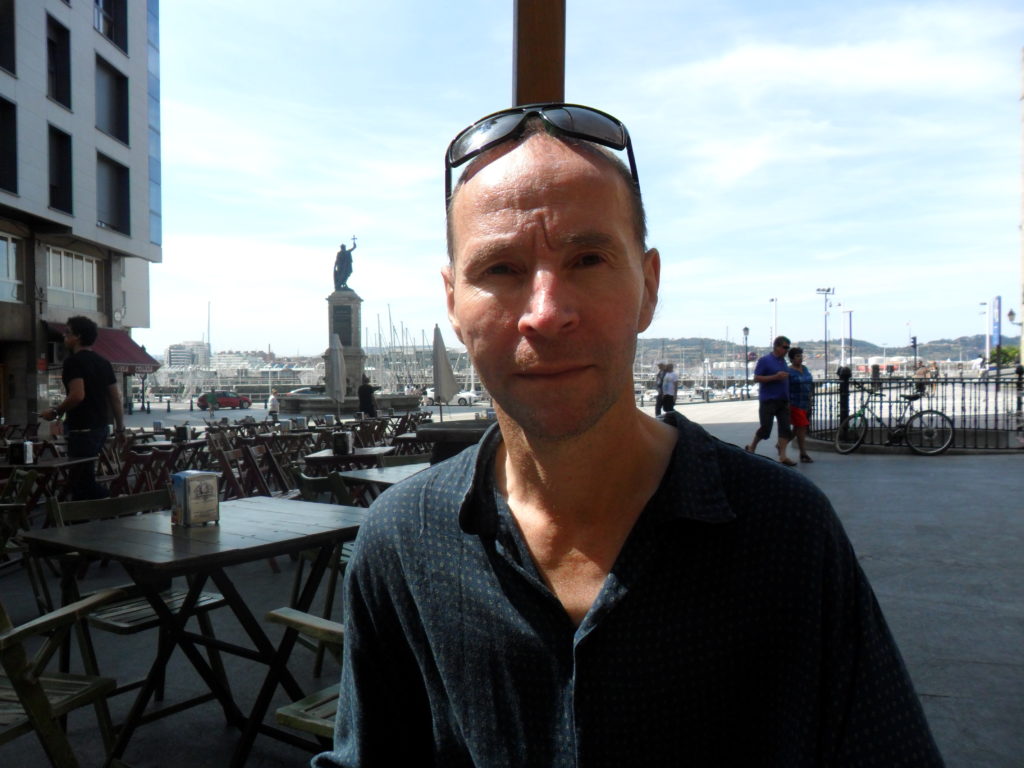This is Part 4 of a series of blogs linked to the ‘Let’s build peace: here and now’ conversations being organised by the Foundations for Peace (FFP) Network.
A point to which these conversations constantly return and which is also stressed in the previous article is the duration of peacebuilding. As Gabi points out, it’s ‘a slow, slow process’, bringing together people who have previously refused to speak to each other. Martin Macwan also speaks of ‘trying to move from two steps forward and four steps back, to three steps forward and four steps back.’
All of the peacebuilders you talk to or listen to stress the need for patience, sometimes the frustration of the long endeavour. Constant vigilance is needed and it should be exercised not by governments or other authorities but by individuals, who rubbing shoulders daily with those who have different views and were once and might become again hostile, have a responsibility to build peace by combatting prejudice, by learning to recognise in others and encouraging others to recognise in them the fact that their may be more to bring them together than to separate them.
Dawn Shackel of CFNI in an earlier conversation in this series, speaks of the fragility of the peace in Northern Ireland, even 23 years after it was concluded: ‘while there’s been relative stability, and there hasn’t been the same violence as at the height of the Troubles, if you scratch below the surface it won’t be long in coming up.’
Peace, not conflict, is episodic
Kamala sums this up and in doing so, turns the common view of war and peace on its head. ‘Conflicts don’t just end,’ she says. ‘Maybe there’s an episode of peacemaking, but I truly believe that it’s peace that’s episodic, not conflict.’ Given the fact that conflicts evolve through a very long period of time, the process of peacebuilding necessarily becomes long-term. We don’t have a particular point where we say “Oh we’ve succeeded, now we can go back and do something else!” These views are attested by a sobering statistic produced by the United Nations Verification Mission in Colombia, last year. Since the signing of the Peace Agreement which terminated the conflict between the Colombian government and FARC-EP five years ago, more than 300 ex-combatants and 477 human rights defenders and civic leaders have been killed.
‘Conflicts don’t just end. Maybe there’s an episode of peacemaking, but I truly believe that it’s peace that’s episodic, not conflict.’
Kamala Chandrakirana
In spite of the seeming pessimism of this view, it expresses a truth which surfaces again and again when peacebuilding is discussed: ‘[Peace is] not about the powers of two conflicting entities sitting at the table and shaking hands on an agreement that is based on whatever compromises these elites make.’ Dawn Shackel touches on the same idea in the earlier conversation already mentioned when she says that the Good Friday Agreement which brought to an end the conflict in Northern Ireland, ‘wasn’t really a peace accord but a political agreement that led to the cessation of violence,’ On the subject of repetition, let’s remind ourselves of the corollary of this that Kamala outlined in the previous blog: ‘Peace requires the average citizen and it requires victims and survivors to make it work.’ And this is where the experience and the testimony of storytelling among exactly those groups is vital.
Why does this idea need to be repeated again and again? Because it is not being heard by the people who need to hear it.
‘[Peace is] not about the powers of two conflicting entities sitting at the table and shaking hands on an agreement that is based on whatever compromises these elites make.’
Dawn Shackel
Whose peace?
Thinking about storytelling raises wider questions for the development industry generally. It brings out very forcefully the fundamental humanity which ought to be involved in the process and should lead us to question if this is really served. Barry Knight who moderated the discussion, speaks of ‘the dry and log-frame-driven discourse of the development industry that wants to see inputs and outputs.’ Even if interventions work on their own terms, that doesn’t mean that these terms are necessarily the right ones. Funders should be asking themselves whether in the urge to feel justified, they have forgotten to be compassionate.
Funders should be asking themselves whether in the urge to feel justified, they have forgotten to be compassionate.

Andrew Milner is a freelance writer, researcher and editor specializing in the areas of philanthropy and civil society. He is a consultant to Philanthropy for Social Justice and Peace. He is also a regular contributor to and Features editor of Alliance magazine.